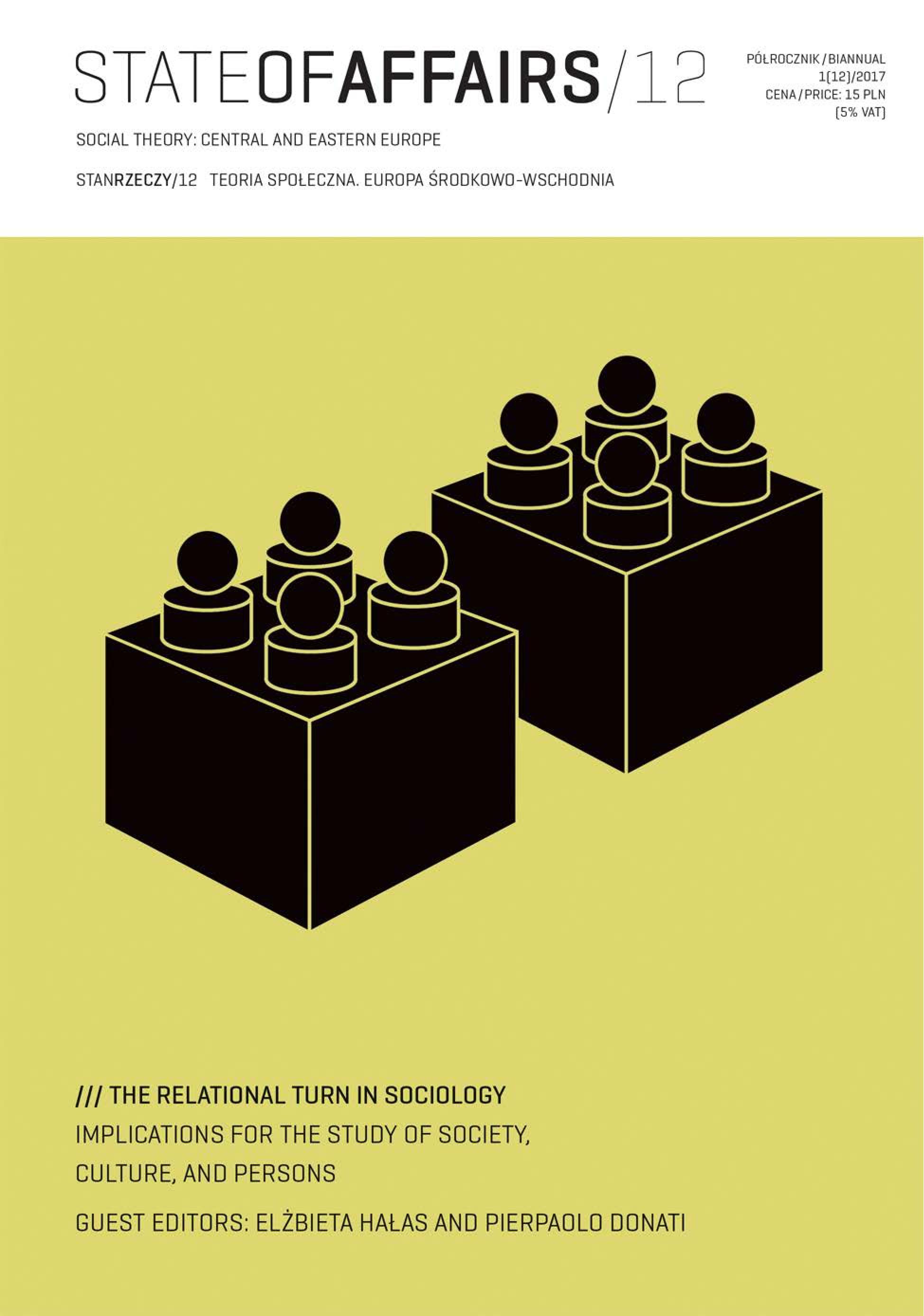After the Relational Turn: The Problem of Social Identity
After the Relational Turn: The Problem of Social Identity
Author(s): Irena SzlachcicowaSubject(s): Social Sciences, Sociology, Social Theory
Published by: Wydział Socjologii Uniwersytetu Warszawskiego
Keywords: relational sociology; dialogical self; identity; narrative; relational subject
Summary/Abstract: Relational sociology rejects substantialism and focuses its attention on the complexity and dynamics of all forms of social life and the subjective nature of action. Relational thinking is an alternative attitude to both functional structuralism and strongly individualistic-oriented theories. Relationality emphasizes the processual and emergent nature of reality. Actions— individual and collective—appear as successive stages of a specific process of events, and result from the configuration of relations and social interactions constituting a particular situation. Different conceptions of identity have been developed within relationally oriented sociology. The aim of the article is to summarize the narrative and realistic approaches, and to present how much they differ in their ontological assumptions. The constructionist concept of narrative identity presented by Margaret R. Somers, and Kenneth J. Gergen’s project of a “relational self,” illustrate the narrative approach. Pierpaolo Donati’s concept of the relational subject and the theory of agency developed by Margaret S. Archer exemplify the position of critical realism.
Journal: Stan Rzeczy
- Issue Year: 2017
- Issue No: 12
- Page Range: 191-214
- Page Count: 24
- Language: English

